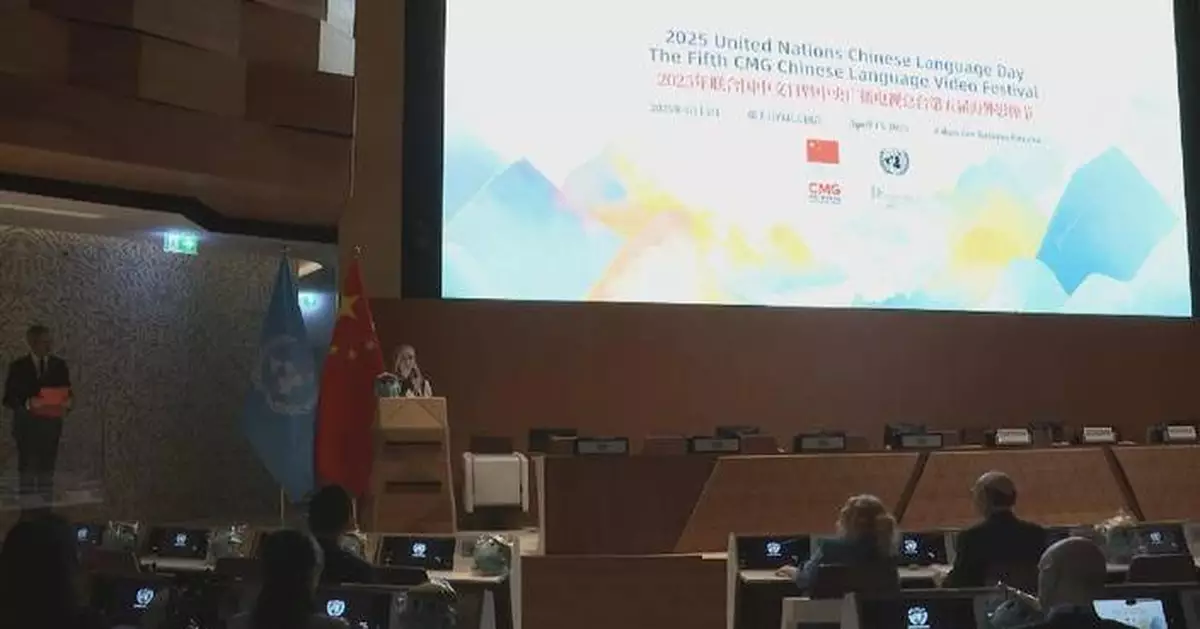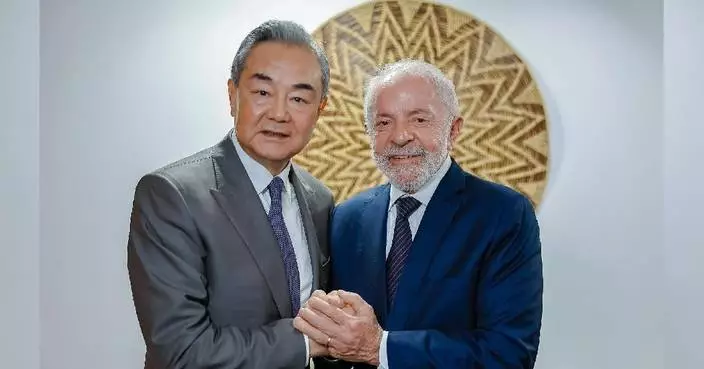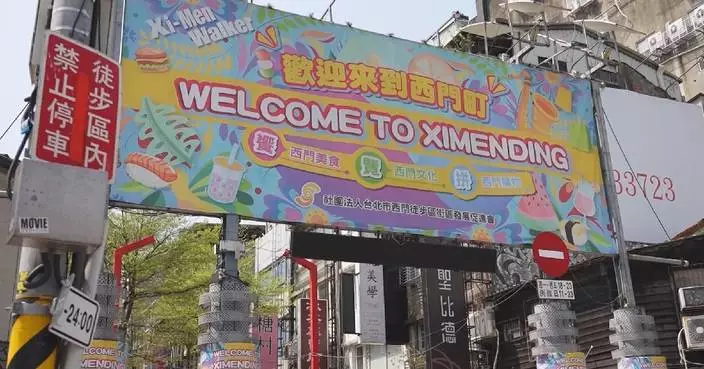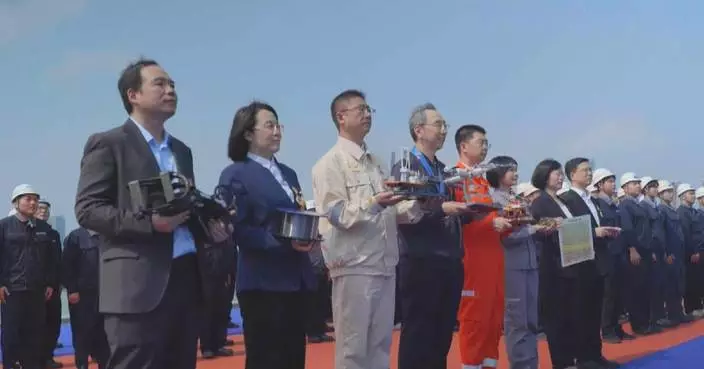The 2025 United Nations Chinese Language Day and the 5th China Media Group (CMG) Chinese Language Video Festival were held at the UN Office in Geneva on Tuesday.
The event, co-hosted by the CMG, the Permanent Mission of China to the UN Office at Geneva and other international organizations in Switzerland, and the UN Office at Geneva, invited friends worldwide to share their "China Travel" stories through video.
Over 300 guests attended the event, including representatives from the organizers, permanent representatives to the UN office in Geneva from around 50 countries, senior diplomats, representatives of international organizations and institutions.
Addressing the event via video link, Shen Haixiong, vice minister of the Publicity Department of the Communist Party of China Central Committee and CMG president, said the increasing popularity of Chinese culture and Chinese stories has attracted more and more international viewers to explore China.
Stressing that China's development cannot be separated from the world and that the world's prosperity also needs China, Shen expressed his hope that through this event, more foreign friends will come to China to discover new opportunities.
Tatiana Valovaya, director-general of the UN office in Geneva, said the Chinese language, as one of the oldest and most influential languages in the world, has always been a bridge for exchanges and mutual learning among civilizations.
She called for joint efforts to respect the diversity of civilizations to embrace a better future.
Chen Xu, permanent representative of China to the UN Office in Geneva and other international organizations in Switzerland, said the annual Chinese Language Day not only reflects the importance the UN places on Chinese language and culture, but also illustrates the UN's firm commitment to promoting exchanges and mutual learning among world civilizations.
At the event, past winners of the Chinese Language Video Festival prizes shared their experiences. Max Burns from the UK, who is passionate about Chinese cuisine, expressed his desire to travel across China and share his culinary adventures with a global audience. Eleni Sotiriou from Greece hopes to return to China to study classical Chinese dance and explore more of the country's rich culture.
Also at the event, a new integrated media product named "China Travel with Cang Bao" was launched. The product, featuring Cang Bao, the mascot of UN Chinese Language Day, told the audience engaging Chinese stories in a relaxed and immersive way to help them explore the rich Chinese cultural heritage through the use of digital technology.
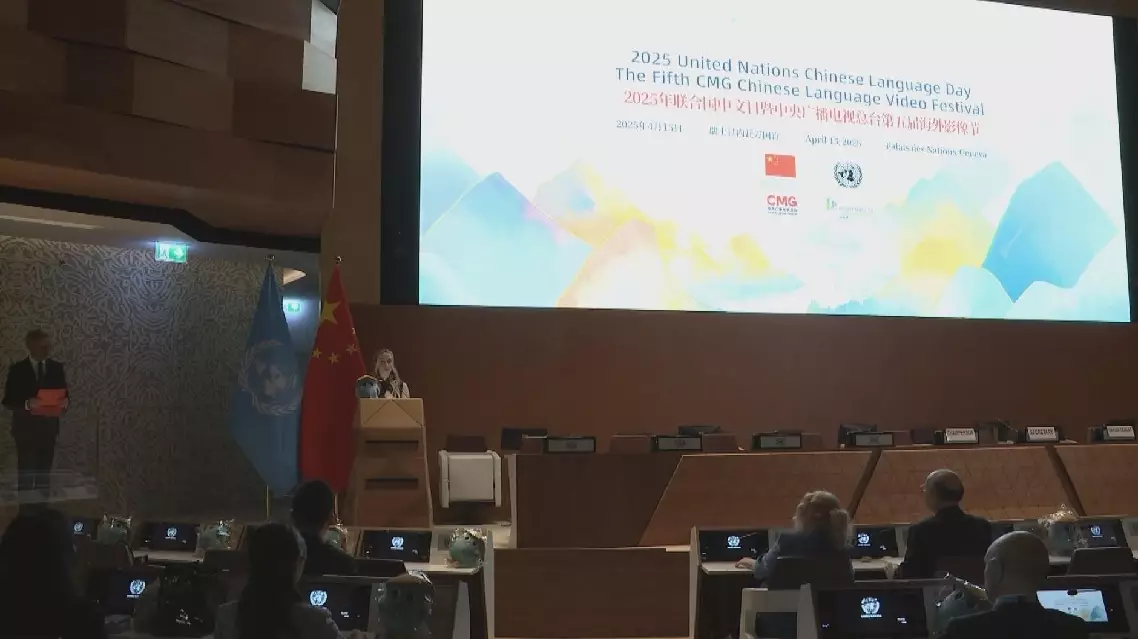
2025 UN Chinese Language Day and CMG Video Festival held in Geneva
U.S. tariffs on Cambodia, which were set at 49 percent, have sparked concerns among the Southeast Asian country's key export industries such as garment manufacturing amid the ensuing economic uncertainties.
On April 2, U.S. President Donald Trump announced the 49 percent "reciprocal tariff" on goods imported from Cambodia, the highest among all countries. Days later, the U.S. reduced the so-called "reciprocal tariff" to 10 percent for 90 days, offering a window period to Cambodia for negotiations with it.
Cambodian businesspeople say the tariffs have the potential to wreak havoc on the country's manufacturing sector, which, according to data from the World Bank, makes up around a fifth of the country's GDP.
"For U.S. manufacturers, definitely, there will be a big impact. If manufacturers are focusing on U.S. products, they are now in the middle. They don't know what they should do at the moment because the tariff now from Cambodia to the U.S. is actually quite high," said Dr. Ben Li, a Hong Kong investor in Cambodia and Chairman of the Cambodia Chinese Commerce Association.
Nevertheless, Li sees the tariff hike as an opportunity to export more Cambodian goods to the European Union, where a majority of Cambodian exports enjoy duty-free status.
"I always say there will be a light (at the end of the tunnel.) Even now, the U.S. tariff is so high, it's going to be so high after 90 days, we don't know. But, there's still a big market to Japan or to the European Union. There's still a big opportunity there," he said.
The Cambodian investor also believes the development of major infrastructure projects will help support Cambodia's economy.
"Especially the new canal and then the new airport, and the railways which connect to China. I believe once the logistics and infrastructure are built up, it can help the whole country's economy. By reducing the transportation costs, it can also mitigate the tariff costs," he said.
Cambodia and the U.S. held their first tariff negotiations on April 16, with more expected to follow. Local experts said the stakes are high for the country's workers.
"If this negotiation fails, there will be a significant impact. It will include the garment and travel goods sector. These sectors consist of about 1,068 factories and 930,000 workers. The income generated from these sectors is about 3 billion dollars per year. So it would significantly impact Cambodia's economy, jobs and incomes," said Chey Tech, a socio-economic research and development consultant from Dynamic Alliance Consulting.
Despite the potential risks, Tech expressed his optimism about a positive outcome, citing Cambodian Prime Minister Hun Manat's letter to Trump on April 4.
"The Prime Minister's letter confirmed that Cambodia would reduce the tariff rate for U.S. goods to 5 percent. Second, Cambodia is the least developed country. Third, Cambodia produces goods that the developed countries won't produce. We asked whether the U.S. would be able to produce these low-cost products. It cannot," said Tech.
In 2024, Cambodia exported goods of 9.9 billion dollars to the U.S., making it the country's largest market, accounting for 37 percent of Cambodia's total exports.
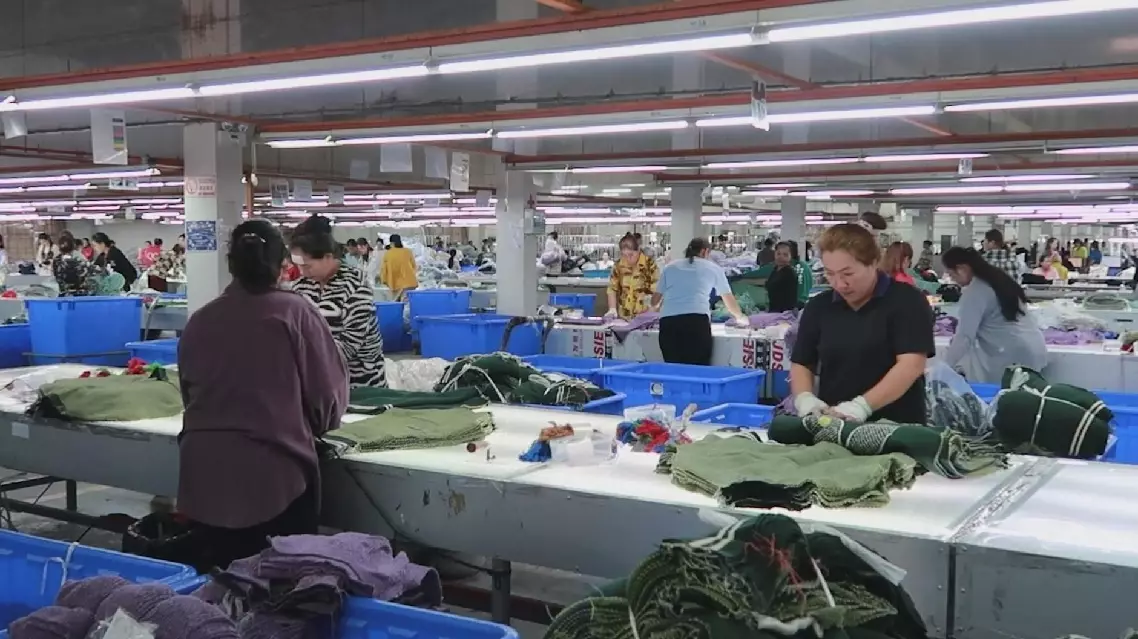
49-percent US tariffs sparks worry among Cambodia's key export industries



